Search Result
Results for "
CXCR4 antagonist
" in MedChemExpress (MCE) Product Catalog:
1
Isotope-Labeled Compounds
| Cat. No. |
Product Name |
Target |
Research Areas |
Chemical Structure |
-
- HY-147808
-
|
|
CXCR
HIV
|
Infection
Inflammation/Immunology
Cancer
|
|
CXCR4 antagonist 7 (Compound PARA-B) is a CXCR4 antagonist with the IC50 of 9.3 nM. CXCR4 antagonist 7 can be used for the research of HIV infection, inflammatory diseases, cancer, and WHIM syndrome .
|
-
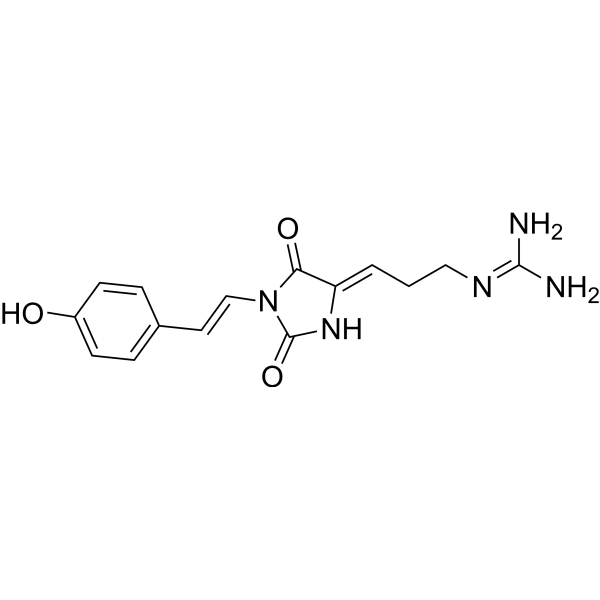
-
- HY-136437
-
|
|
CXCR
HIV
|
Infection
|
|
CXCR4 antagonist 1 is a potent CXCR4 antagonist. CXCR4 antagonist 1 has anti-HIV activity .
|
-
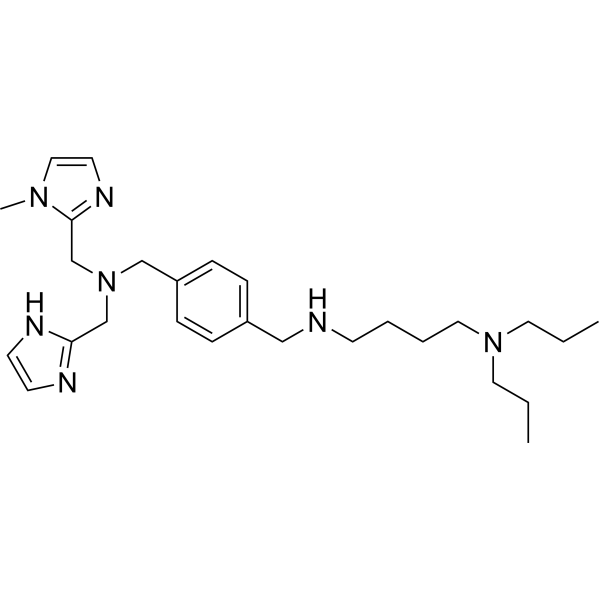
-
- HY-147978
-
|
|
CXCR
|
Infection
Cancer
|
|
CXCR4 antagonist 8 (Compound 3) is a CXCR4 antagonist with an IC50 of 57 nM. CXCR4 antagonist 8 inhibits CXCL12 induced cytosolic calcium increase with an IC50 of 0.24 nM. CXCR4 antagonist 8 inhibits CXLC12/CXCR4 mediated cell migration .
|
-
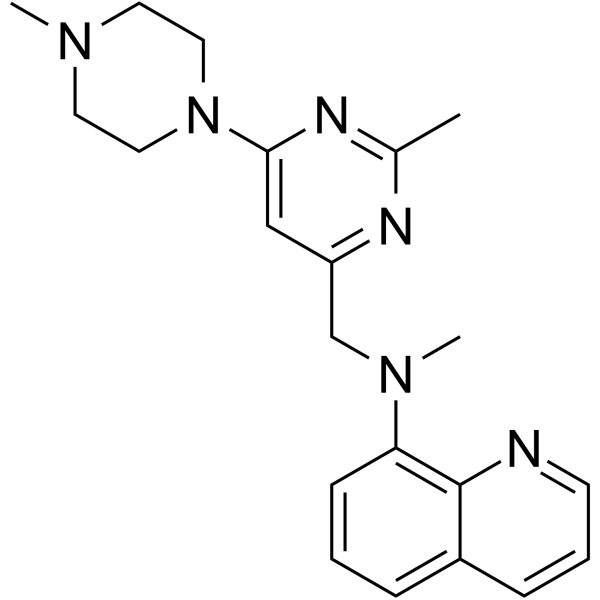
-
- HY-144286
-
|
|
CXCR
|
Infection
|
|
CXCR4 antagonist 3 (compound 12a) is a potent antagonist of CXCR4 with an IC50 of 11 nM. CXCR4 antagonist 3 is a congener of TIQ15. CXCR4 antagonist 3 demonstrates the best overall properties including CXCR4 antagonism, CYP 2D6 inhibition, metabolic stability, and permeability. CXCR4 antagonist 3 has the potential for the research of human immunodeficiency virus .
|
-
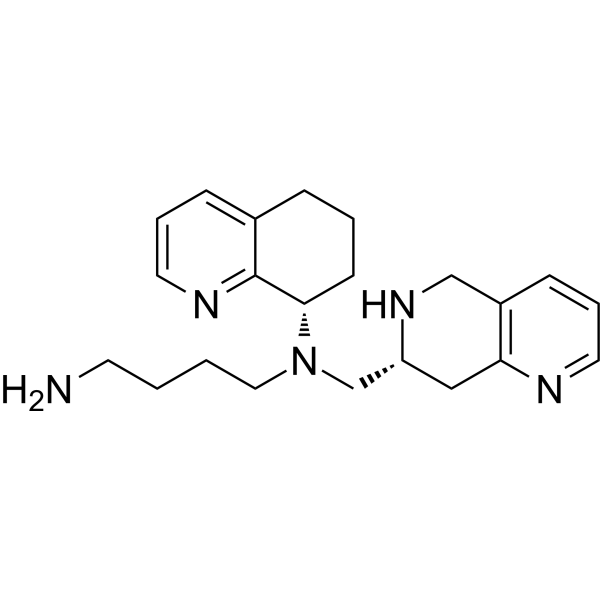
-
- HY-146401
-
|
|
CXCR
|
Cancer
|
|
CXCR4 antagonist 6 (compound 46) is a potent CXCR4 antagonist with an IC50 value of 79 nM. CXCR4 antagonist 6 inhibits CXCL12 induced cytosolic calcium flux (IC50 = 0.25 nM). CXCR4 antagonist 6 significantly mitigates CXCL12/CXCR4 mediated cell migration. CXCR4 antagonist 6 exhibits marked efficacy in a cancer metastasis model in mice .
|
-
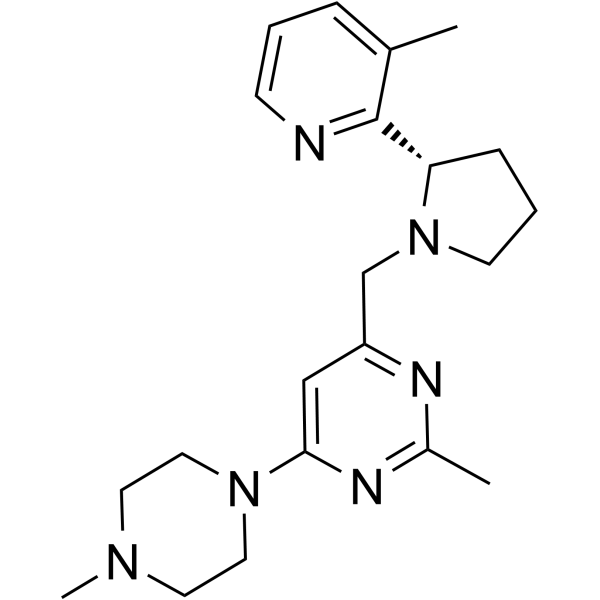
-
- HY-132936
-
|
|
CXCR
|
Others
|
|
CXCR4 antagonist 2 is a CXCR4 antagonist with an IC50 value of 47 nM.
|
-
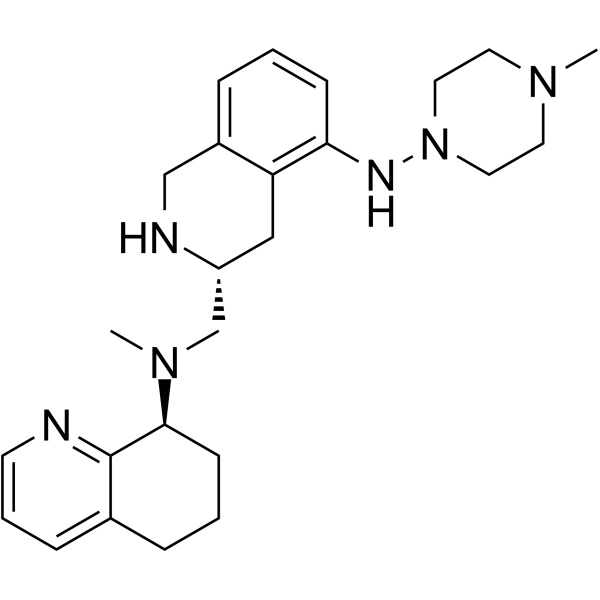
-
- HY-147979
-
|
|
CXCR
|
Infection
Cancer
|
|
CXCR4 antagonist 9 (Compound 2) is a CXCR4 antagonist with an IC50 of 15 nM. CXCR4 antagonist 9 inhibits CXCL12 induced cytosolic calcium increase with an IC50 of 1.3 nM .
|
-
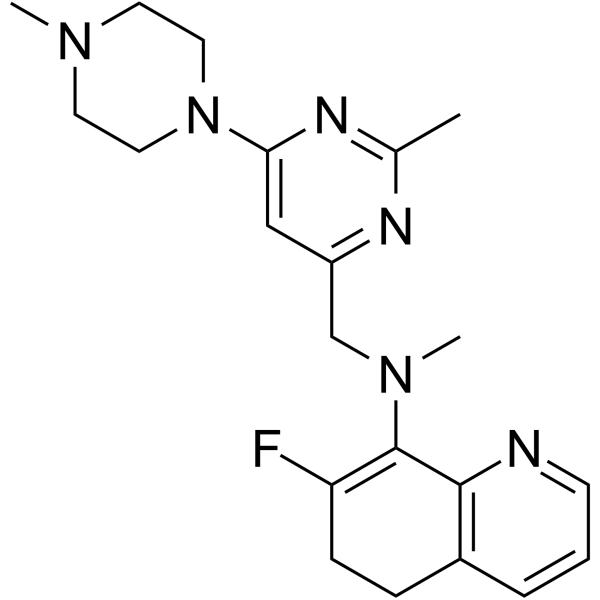
-
- HY-146372
-
|
|
CXCR
|
Cancer
|
|
CXCR4 antagonist 5 (compound 23) is a highly potent CXCR4 antagonist with an IC50 value of 8.8 nM. CXCR4 antagonist 5 can inhibit CXCL12-induced cytosolic calcium increase (IC50 = 0.02 nM) and inhibits CXCR4/CXLC12-mediated chemotaxis. CXCR4 antagonist 5 has good physicochemical properties and in vitro safety profiles, inhibiting CYP isozymes and hERG marginally or moderately .
|
-
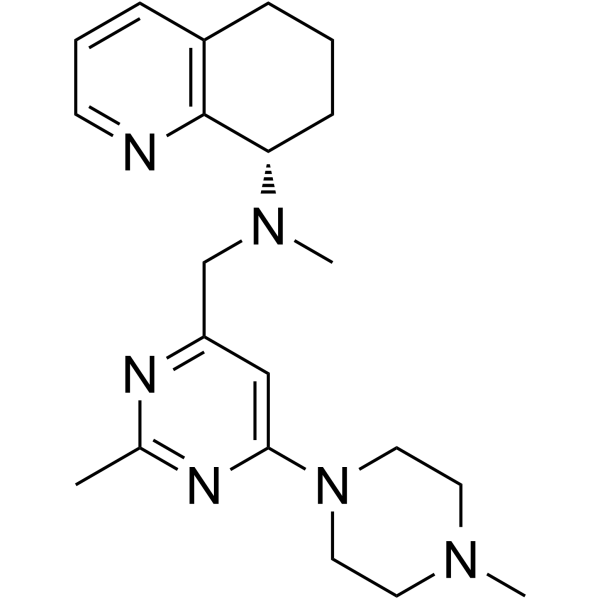
-
- HY-144285
-
|
|
CXCR
HIV
|
Inflammation/Immunology
|
|
CXCR4 antagonist 4 is a potent, orally active CXCR4 antagonist (IC50=24 nM) with diminished CYP 2D6 activity, improved PAMPA permeability, potent inhibition of human immunodeficiency virus entry (IC50=7 nM) .
|
-
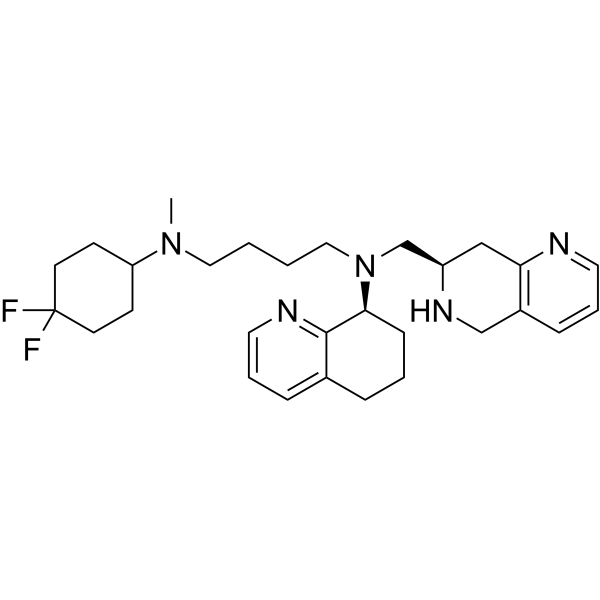
-
- HY-103009
-
MSX-127
1 Publications Verification
|
CXCR
|
Cancer
|
|
MSX-127 is a CXCR4 antagonist. MSX-127 inhibits cancer metastasis .
|
-
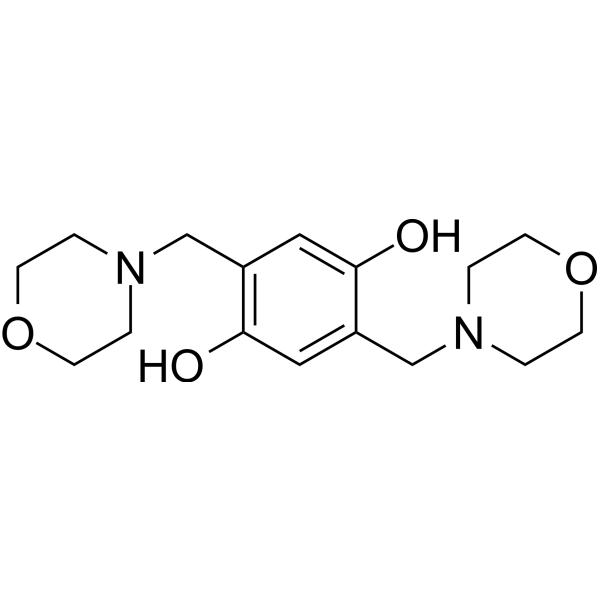
-
- HY-103010
-
|
|
CXCR
|
Cancer
|
|
MSX-130 is a CXCR4 antagonist. MSX-130 inhibits cancer metastasis .
|
-
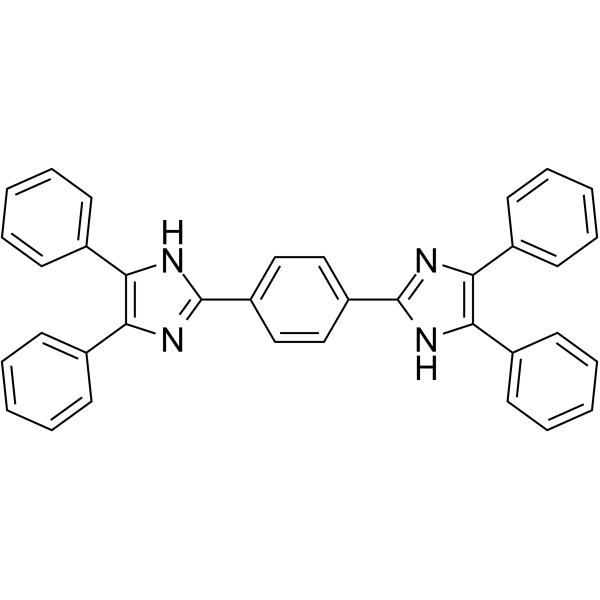
-
- HY-146413
-
|
|
CXCR
HIV
|
Infection
Cancer
|
|
HF50731 (compound 21) is a potent CXCR4 antagonist. HF50731 shows strong CXCR4 binding affinity, with IC50 of 19.8 nM. HF50731 effectively inhibits calcium mobilization, cell migration, and HIV-1 infection via CXCR4 coreceptor, with IC50 values of 119.2 nM, 621.4 nM and 1.5 μM .
|
-
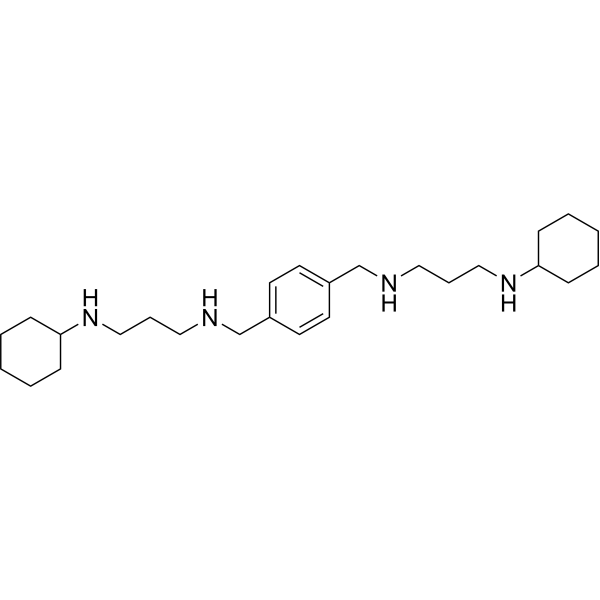
-
- HY-101458A
-
-
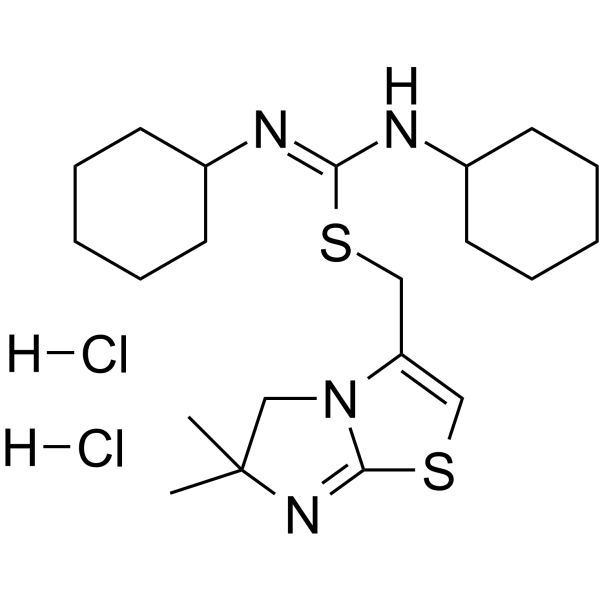
-
- HY-101458
-
|
|
|
|
|
IT1t is a potent CXCR4 antagonist; inhibits CXCL12/CXCR4 interaction with an IC50 of 2.1 nM.
|
-
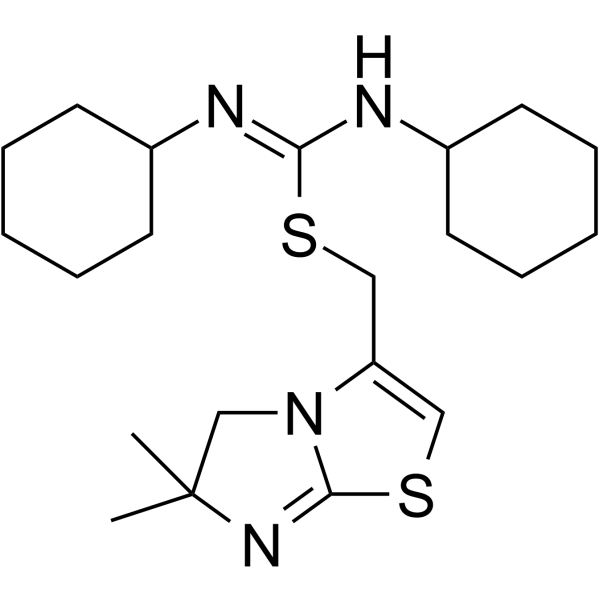
-
- HY-12488
-
|
|
CXCR
|
Endocrinology
Cancer
|
|
LY2510924 is a potent and selective CXCR4 antagonist that blocks SDF-1 binding to CXCR4 with an IC50 of 0.079 nM.
|
-
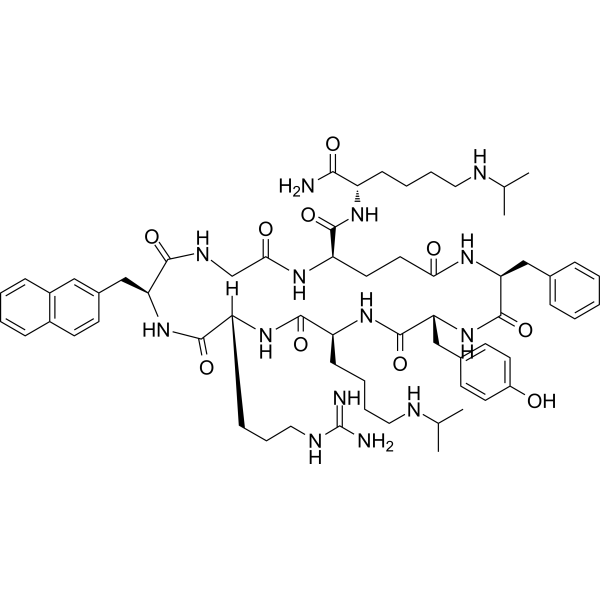
-
- HY-P1103
-
|
|
CXCR
|
Cancer
|
|
CTCE-9908 is a potent and selective CXCR4 antagonist. CTCE-9908 induces mitotic catastrophe, cytotoxicity and inhibits migration in CXCR4-expressing ovarian cancer cells .
|
-
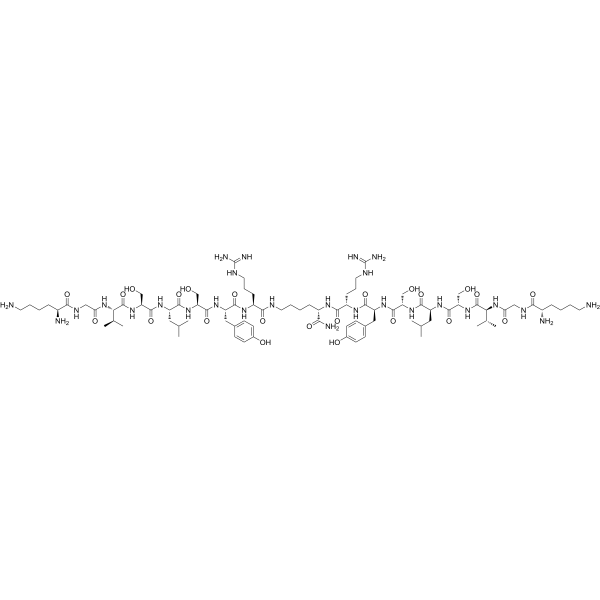
-
- HY-P1104A
-
|
|
CXCR
HIV
|
Infection
|
|
FC131 TFA is a CXCR4 antagonist, inhibits [ 125I]-SDF-1 binding to CXCR4, with an IC50 of 4.5 nM. Anti-HIV activity .
|
-
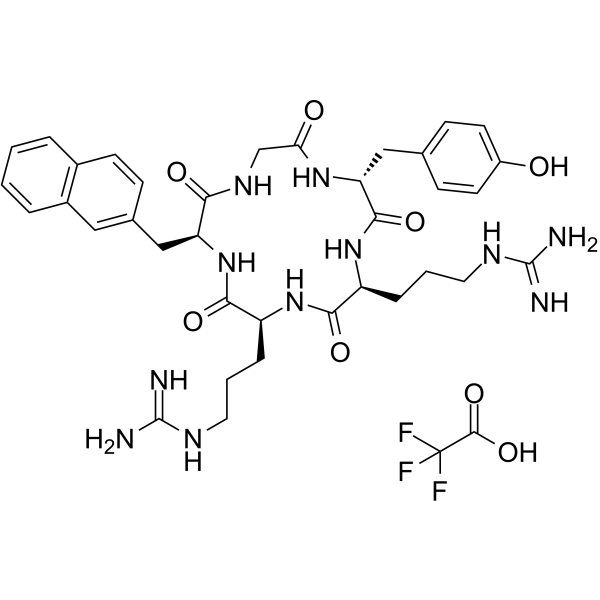
-
- HY-13696
-
-
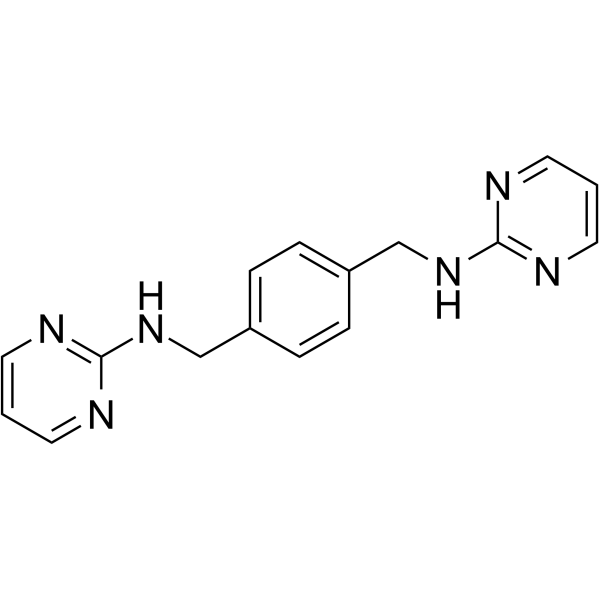
-
- HY-P1103A
-
|
|
CXCR
|
Cancer
|
|
CTCE-9908 TFA is a potent and selective CXCR4 antagonist. CTCE-9908 TFA induces mitotic catastrophe, cytotoxicity and inhibits migration in CXCR4-expressing ovarian cancer cells .
|
-
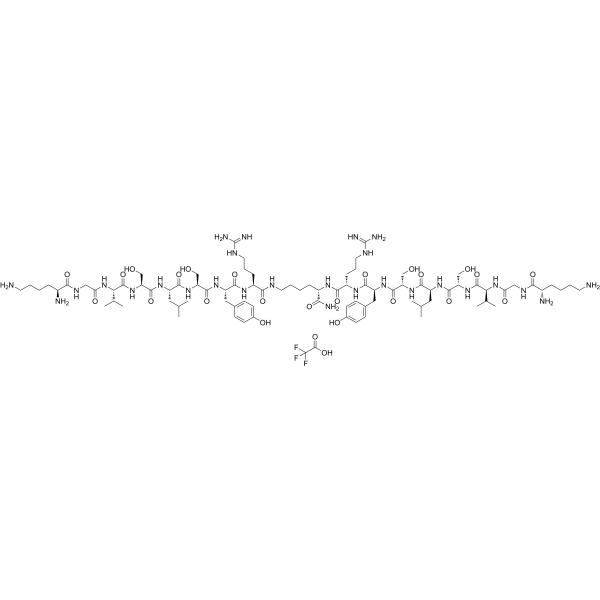
-
- HY-P4109
-
|
NT21MP; V1 peptide
|
CXCR
|
Inflammation/Immunology
Cancer
|
|
vMIP-II (1-21) is a CXCR4 antagonist. vMIP-II has broad-spectrum interaction with CC and CXC chemokine receptors. vMIP-II (1-21) binds with CXCR4 with an IC50 value of 190 nM for competing with CXCR4 binding of 125I-SDF-1R .
|
-
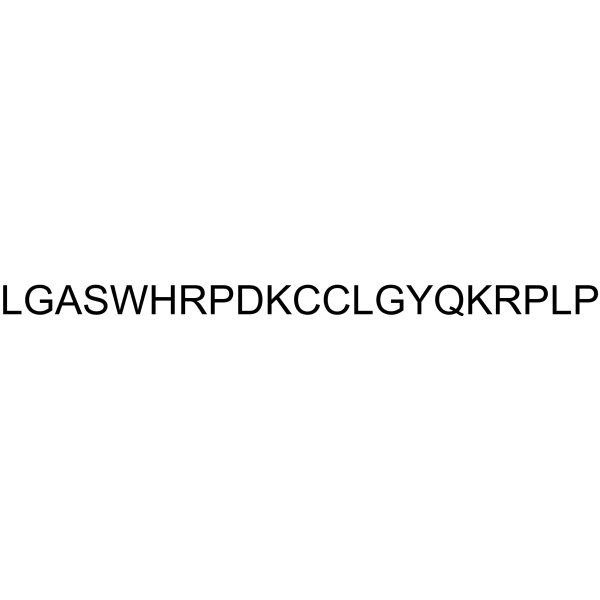
-
- HY-114244
-
|
|
CXCR
|
Endocrinology
Cancer
|
|
USL311 is a potent and selective CXCR4 antagonist, with anti-tumor activity. USL311 prevents the binding of stromal-cell derived factor-1 (SDF-1 or CXCL12) to CXCR4 .
|
-
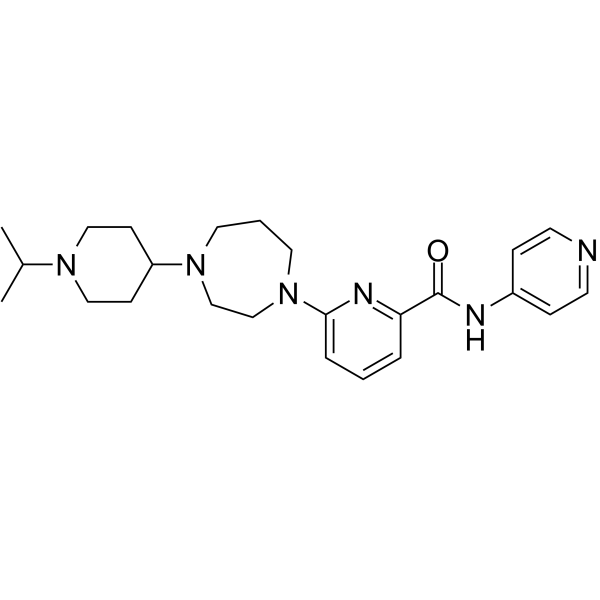
-
- HY-P1104
-
|
|
CXCR
HIV
|
Infection
|
|
FC131 is a potent CXCR4 antagonist. FC131 inhibits [ 125I]-SDF-1 binding to CXCR4 with an IC50 of 4.5 nM. FC131 has anti-HIV activity .
|
-
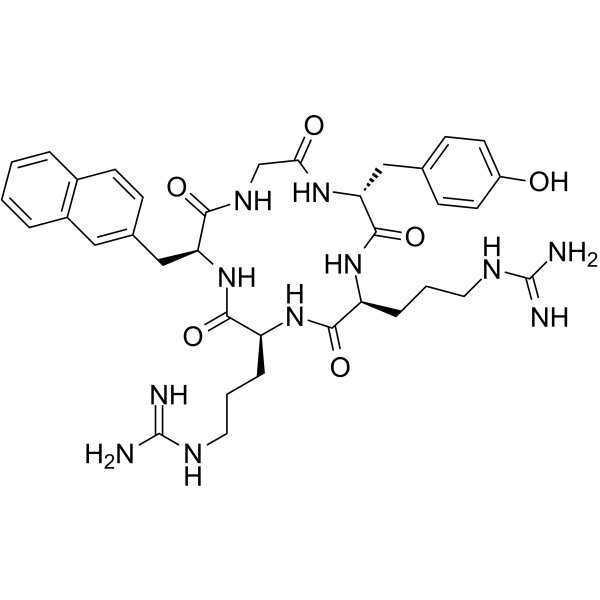
-
- HY-115493
-
|
|
CXCR
|
Others
|
|
TIQ-15 is a potent CXCR4 antagonist with an IC50 value of 6 nM for CXCR4 Ca 2+ flux. TIQ-15 inhibits CYP450 2D6 with an IC50 value of 0.32 μM .
|
-
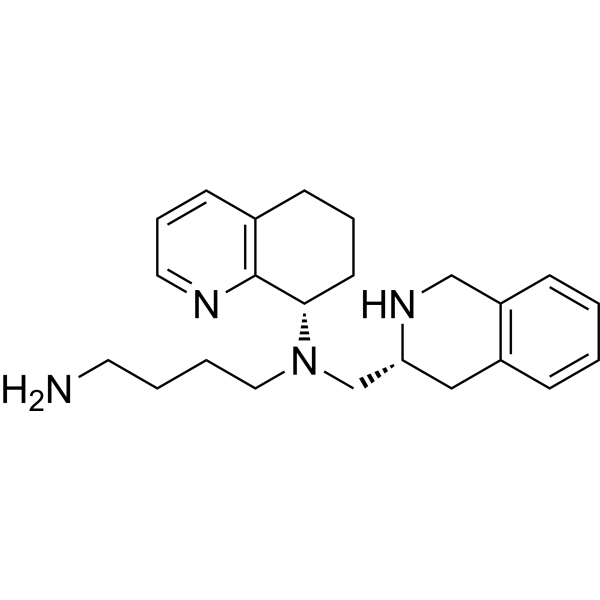
-
- HY-50912
-
-
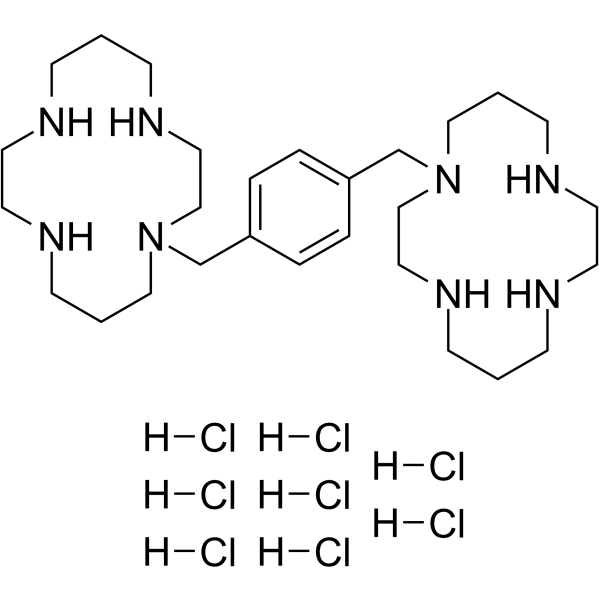
-
- HY-144347
-
|
|
CXCR
|
Infection
Cancer
|
|
HF51116 is a potent antagonist of CXCR4. HF51116 strongly antagonizes SDF-1α-induced cell migration, calcium mobilization, and CXCR4 internalization. HF51116 inhibits HIV-1 infection via CXCR4. HF51116 has the potential for the research of HIV-1 infection, hematopoietic stem cell mobilization, and cancer metastasis .
|
-
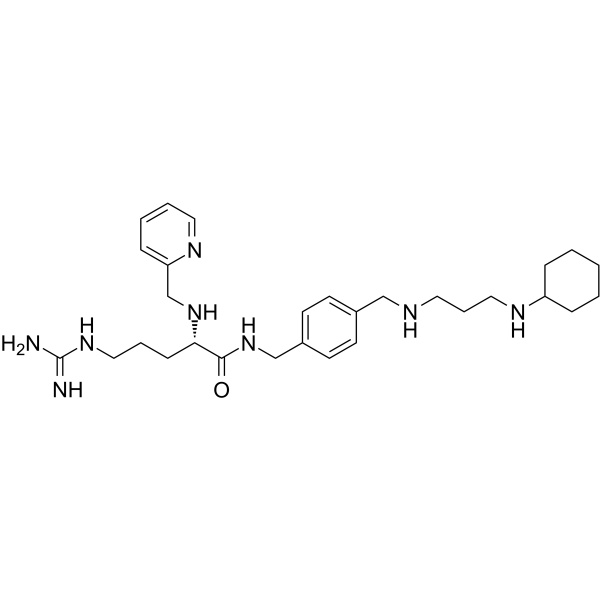
-
- HY-P0171
-
|
BKT140 (4-fluorobenzoyl); BL-8040; TF14016
|
CXCR
|
Endocrinology
Cancer
|
|
Motixafortide (BKT140 4-fluorobenzoyl) is a novel CXCR4 antagonist with an IC50 vakue of ~1 nM.
|
-
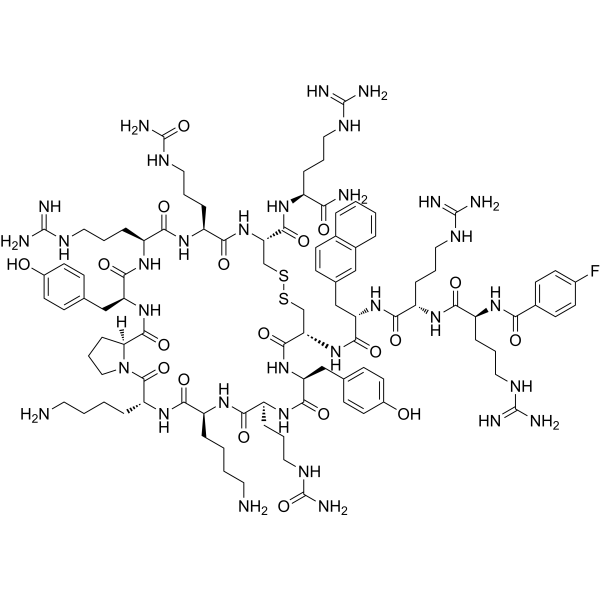
-
- HY-15478
-
WZ811
2 Publications Verification
|
CXCR
|
Endocrinology
Cancer
|
|
WZ811 is an orally active, highly potent competitive antagonist of CXCR4. WZ811 efficiently inhibits CXCR4/SDF-1 (or CXCL12)-mediated modulation of cAMP levels (EC50=1.2 nM) and SDF-1 induced Matrigel invasion in cells (EC50=5.2 nM) .
|
-
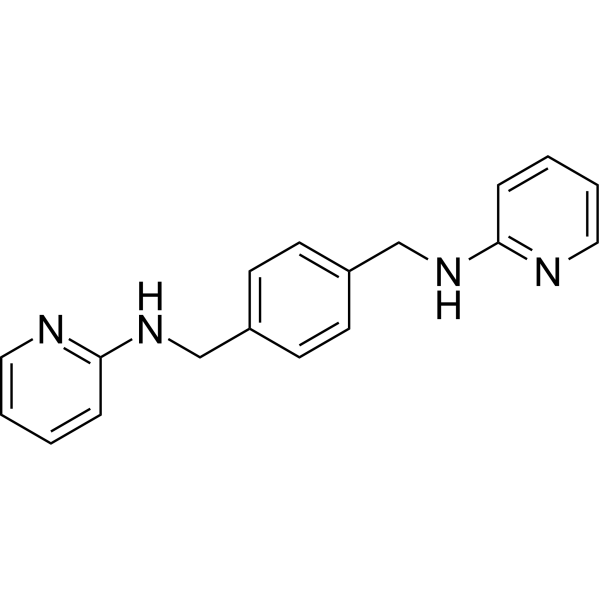
-
- HY-122058A
-
|
|
CXCR
HIV
|
Infection
Inflammation/Immunology
|
|
KRH-3955 hydrochloride is an orally bioavailable CXCR4 antagonist. KRH-3955 hydrochloride inhibits SDF-1α binding to CXCR4 with an IC50 of 0.61 nM. KRH-3955 hydrochloride is also a highly potent and selective inhibitor of X4 HIV-1, with an EC50 of 0.3 to 1.0 nM .
|
-
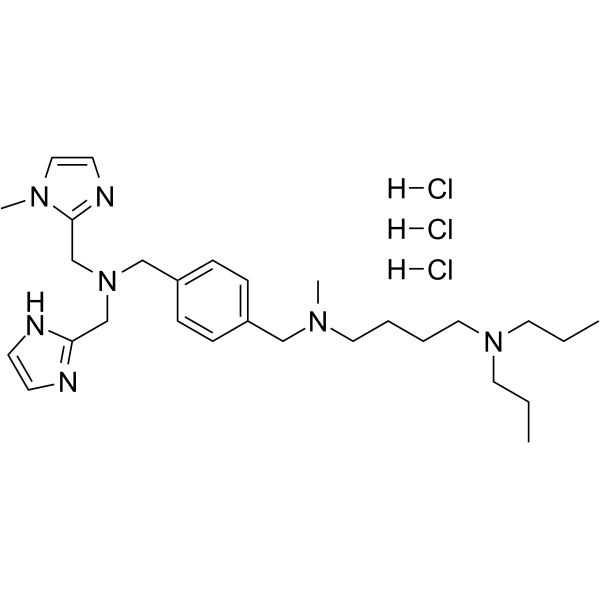
-
- HY-50101A
-
|
AMD-070 trihydrochloride
|
CXCR
HIV
|
Infection
Endocrinology
Cancer
|
|
Mavorixafor trihydrochloride (AMD-070 trihydrochloride) is a potent, selective and orally available CXCR4 antagonist, with an IC50 value of 13 nM against CXCR4 125I-SDF binding, and also inhibits the replication of T-tropic HIV-1 (NL4.3 strain) in MT-4 cells and PBMCs with an IC50 of 1 and 9 nM, respectively.
|
-
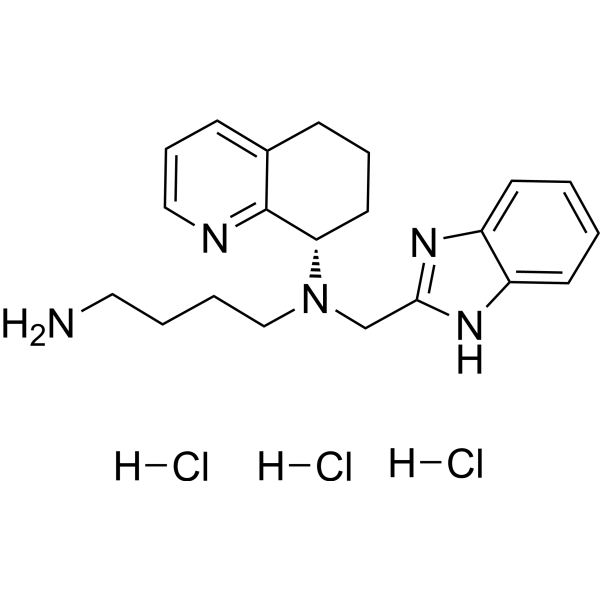
-
- HY-P7061
-
|
|
CXCR
Apelin Receptor (APJ)
|
Infection
Endocrinology
|
|
ALX 40-4C is a small peptide inhibitor of the chemokine receptor CXCR4, inhibits SDF-1 from binding CXCR4 with a Ki of 1 μM, and suppresses the replication of X4 strains of HIV-1; ALX 40-4C Trifluoroacetate also acts as an antagonist of the APJ receptor, with an IC50 of 2.9 μM.
|
-
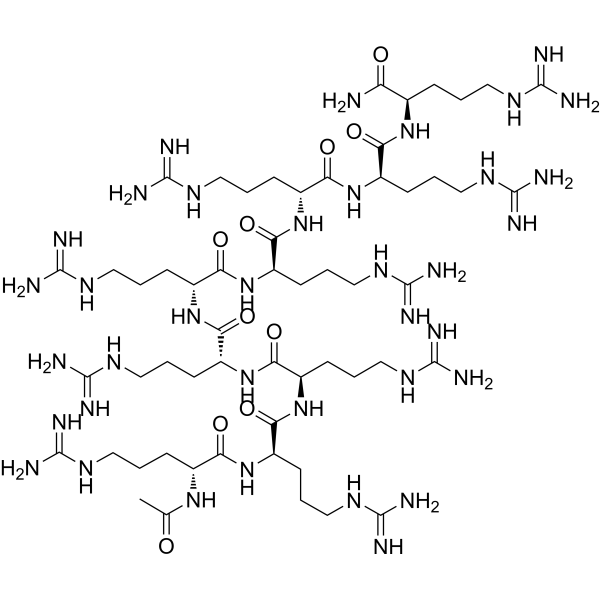
-
- HY-P7061A
-
|
|
Apelin Receptor (APJ)
CXCR
|
Infection
Endocrinology
|
|
ALX 40-4C Trifluoroacetate is a small peptide inhibitor of the chemokine receptor CXCR4, inhibits SDF-1 from binding CXCR4 with a Ki of 1 μM, and suppresses the replication of X4 strains of HIV-1; ALX 40-4C Trifluoroacetate also acts as an antagonist of the APJ receptor, with an IC50 of 2.9 μM.
|
-
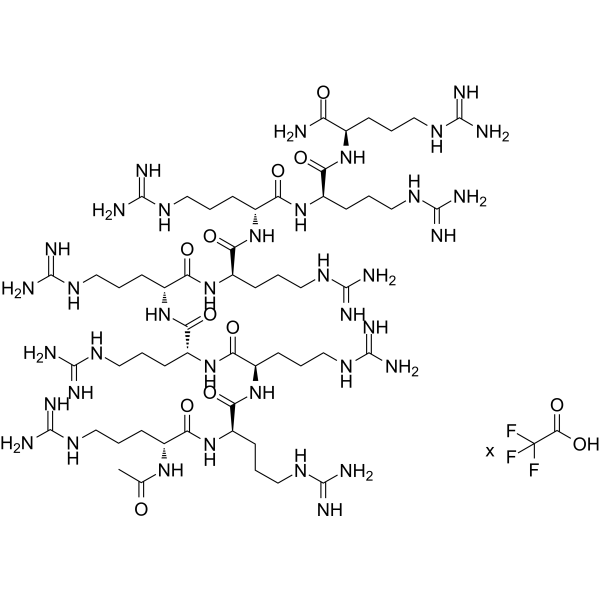
-
- HY-50101
-
|
AMD-070
|
CXCR
HIV
|
Infection
Endocrinology
Cancer
|
|
Mavorixafor (AMD-070) is a potent, selective and orally available CXCR4 antagonist, with an IC50 value of 13 nM against CXCR4 125I-SDF binding, and also inhibits the replication of T-tropic HIV-1 (NL4.3 strain) in MT-4 cells and PBMCs with an IC50 of 1 and 9 nM, respectively.
|
-
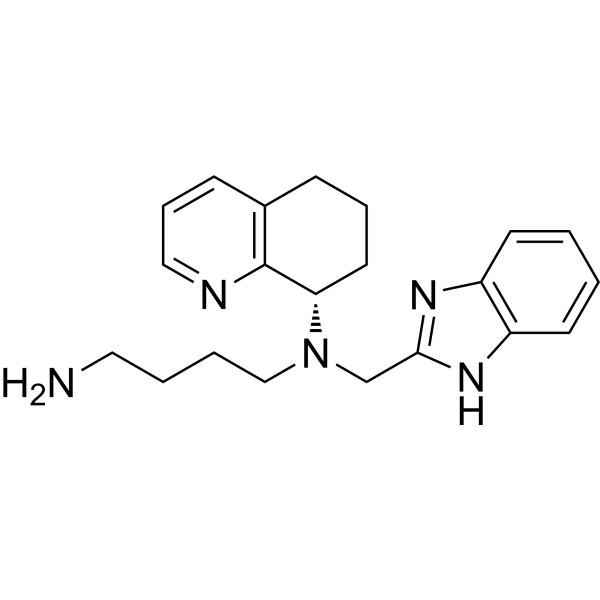
-
- HY-15971A
-
|
GENZ-644494
|
CXCR
HIV
|
Infection
Endocrinology
|
|
AMD 3465 (GENZ-644494) is a potent antagonist of CXCR4, inhibits binding of 12G5 mAb and CXCL12 AF647 to CXCR4, with IC50s of 0.75 nM and 18 nM in SupT1 cells; AMD 3465 also potently inhibits the replication of X4 HIV strains (IC50: 1-10 nM), but has no effect on CCR5-using (R5) viruses.
|
-
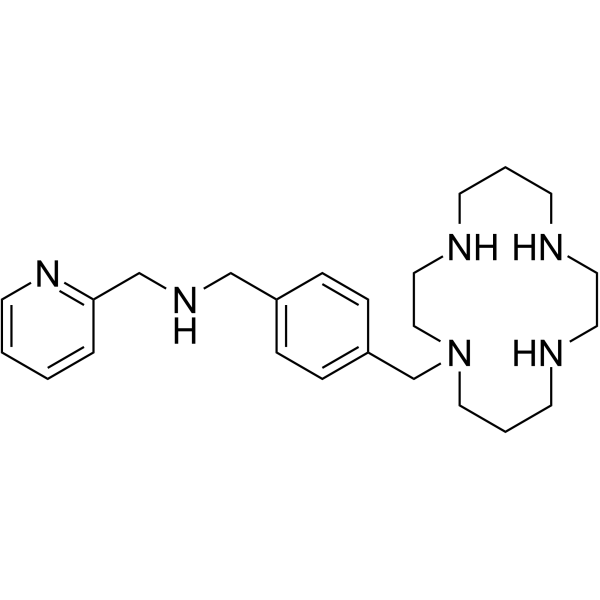
-
- HY-15971
-
|
GENZ-644494 hexahydrobromide
|
CXCR
HIV
|
Infection
Endocrinology
|
|
AMD 3465 hexahydrobromide (GENZ-644494 hexahydrobromide) is a potent antagonist of CXCR4, inhibits binding of 12G5 mAb and CXCL12 AF647 to CXCR4, with IC50s of 0.75 nM and 18 nM in SupT1 cells; AMD 3465 also potently inhibits the replication of X4 HIV strains (IC50: 1-10 nM), but has no effect on CCR5-using (R5) viruses.
|
-
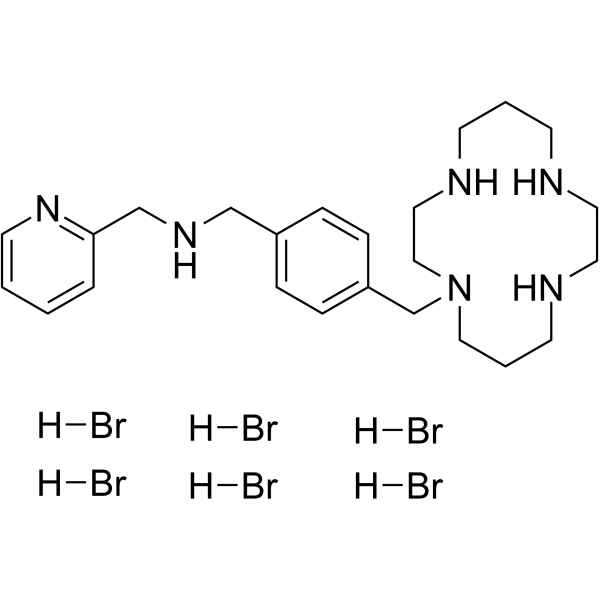
-
- HY-P1682
-
|
POL6326
|
CXCR
Arrestin
|
Cancer
|
|
Balixafortide (POL6326) is a potent, selective, well-tolerated peptidic CXCR4 antagonist with an IC50 < 10 nM. Balixafortide shows 1000-fold selective for CXCR4 than a large panel of receptors including CXCR7. Balixafortide blocks β-arrestin recruitment and calcium flux with IC50s < 10 nM. Balixafortide is also a potent hematopoietic stem and progenitor cell (HSPC) mobilizing agent. Anti-cancer effects .
|
-
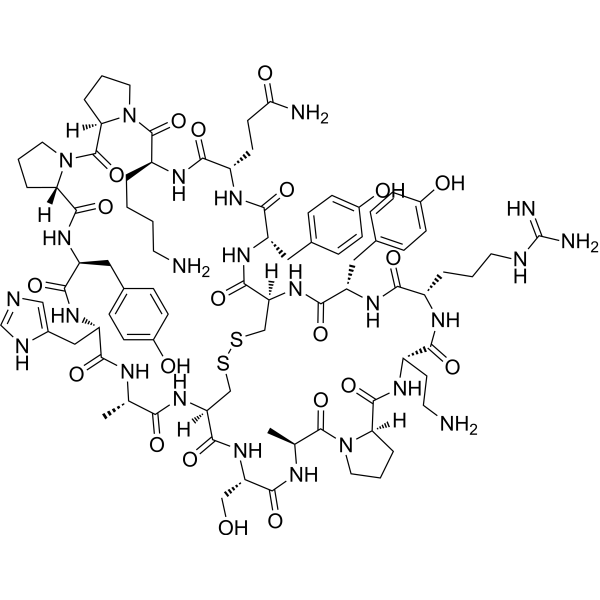
-
- HY-P4111
-
|
|
CXCR
|
Cancer
|
|
Peptide R, a cyclic peptide, is a specific CXCR4 antagonist. Peptide R shows outstanding capacities to profoundly remodel the tumor stroma. Peptide R has the potential for tumor research .
|
-
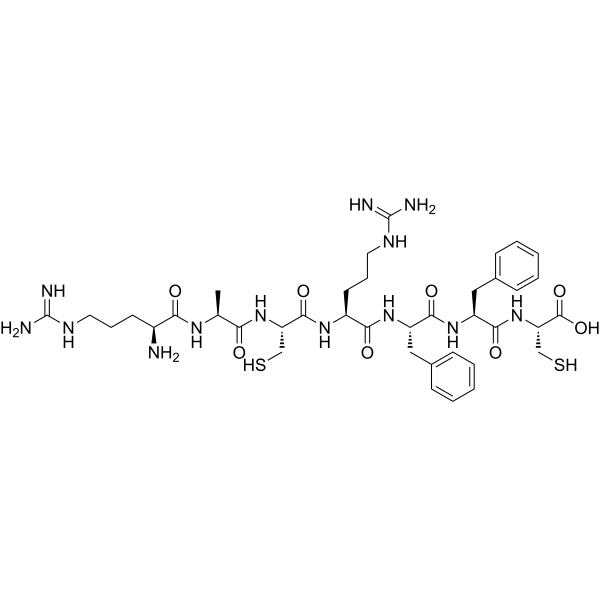
-
- HY-P1682A
-
|
POL6326 TFA
|
CXCR
Arrestin
|
Cancer
|
|
Balixafortide TFA (POL6326 TFA) is a potent, selective, well-tolerated peptidic CXCR4 antagonist with an IC50 < 10 nM. Balixafortide TFA shows 1000-fold selective for CXCR4 than a large panel of receptors including CXCR7. Balixafortide TFA blocks β-arrestin recruitment and calcium flux with IC50s < 10 nM. Balixafortide TFA is also a potent hematopoietic stem and progenitor cell (HSPC) mobilizing agent. Anti-cancer effects .
|
-
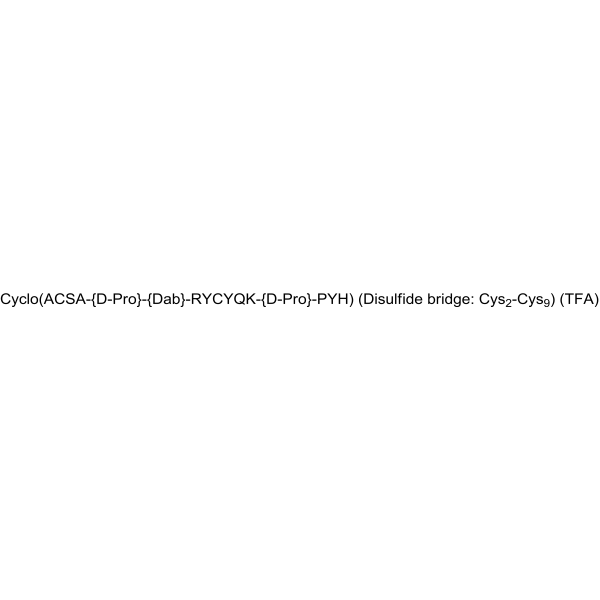
-
- HY-12080
-
|
ZK-811752
|
CCR
|
Inflammation/Immunology
Endocrinology
|
|
BX471 (ZK-811752) is an orally active, potent and selective non-peptide CCR1 antagonist with a Ki of 1 nM, and exhibits 250-fold selectivity for CCR1 over CCR2, CCR5 and CXCR4.
|
-
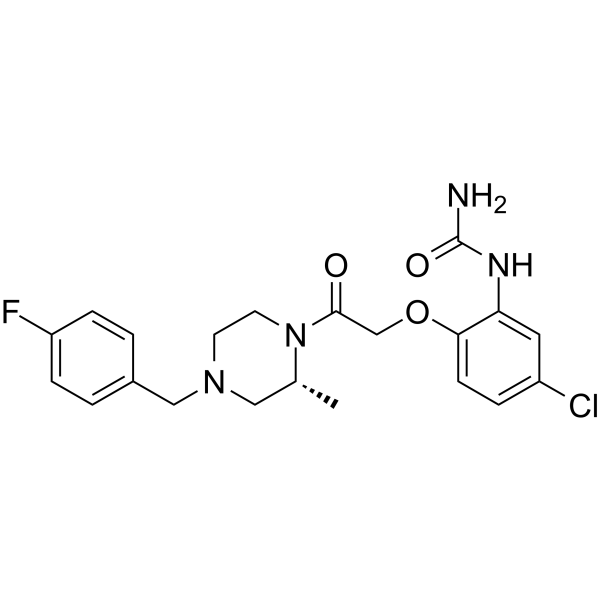
-
- HY-12080A
-
|
ZK-811752 hydrochloride
|
CCR
|
Inflammation/Immunology
Endocrinology
|
|
BX471 hydrochloride (ZK-811752 hydrochloride) is a potent, selective non-peptide CCR1 antagonist with Ki of 1 nM for human CCR1, and exhibits 250-fold selectivity for CCR1 over CCR2, CCR5 and CXCR4.
|
-
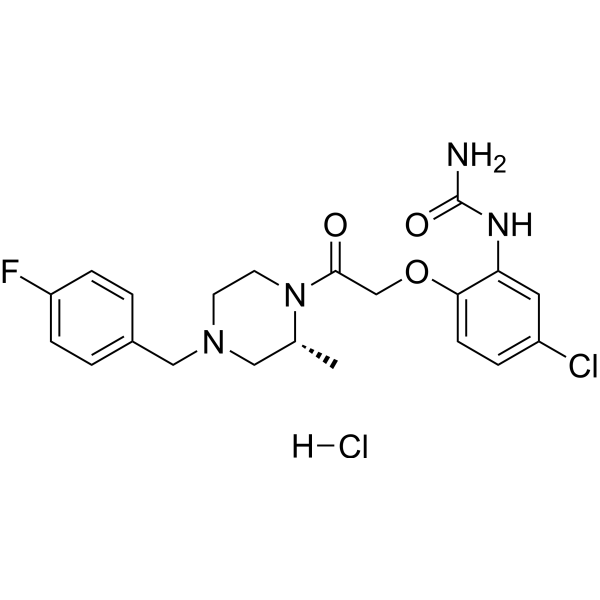
-
- HY-10046
-
Plerixafor
Maximum Cited Publications
60 Publications Verification
AMD 3100; JM3100; SID791
|
CXCR
HIV
|
Infection
Inflammation/Immunology
Endocrinology
Cancer
|
|
Plerixafor (AMD 3100) is a selective CXCR4 antagonist with an IC50 of 44 nM. Plerixafor, an immunostimulant and a hematopoietic stem cell (HSC) mobilizer, is an allosteric agonist of CXCR7. Plerixafor inhibits HIV-1 and HIV-2 replication with an EC50 of 1-10 nM .
|
-
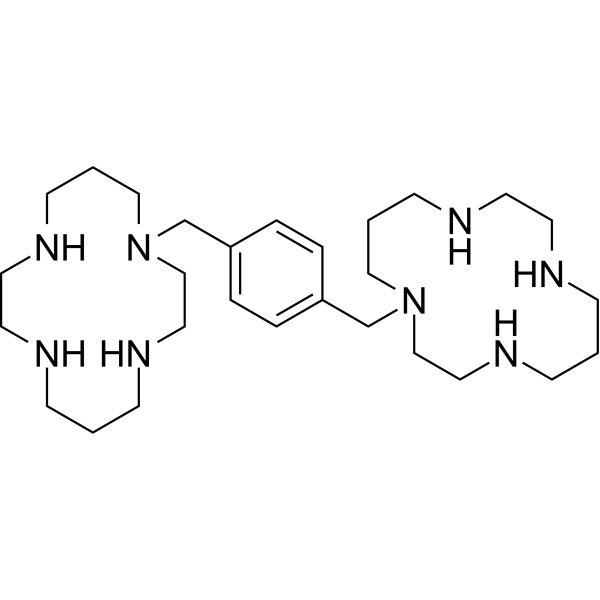
-
- HY-129094
-
|
|
CXCR
|
Cancer
|
|
ICT5040 is a small molecule CXCR4 antagonist (IC50=3.8 μM). ICT5040 inhibits CXCL12-mediated proliferation and migration, and suppresses CXCL12-induced intracellular calcium mobilisation in U87 glioma cells .
|
-
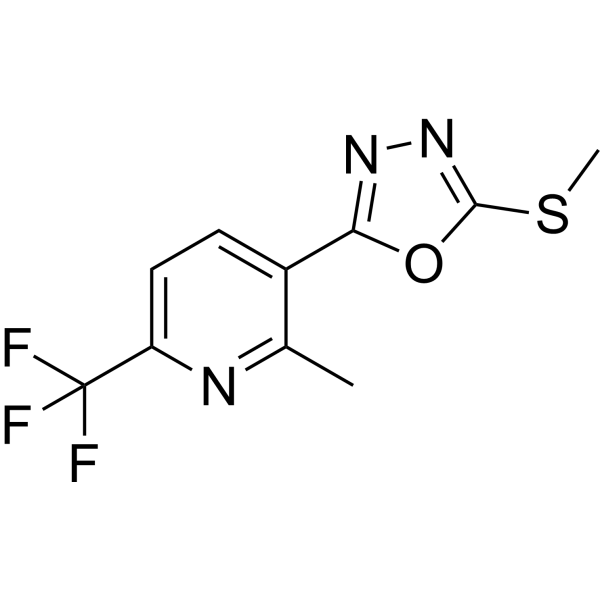
-
- HY-P1102
-
TC14012
2 Publications Verification
|
CXCR
HIV
|
Infection
Cancer
|
|
TC14012, a serum-stable derivative of T140, is a selective and peptidomimetic CXCR4 antagonist with an IC50 of 19.3 nM. TC14012 is a potent CXCR7 agonist with an EC50 of 350 nM for recruiting β-arrestin 2 to CXCR7. TC14012 has anti-HIV activity and anti-cancer activity .
|
-
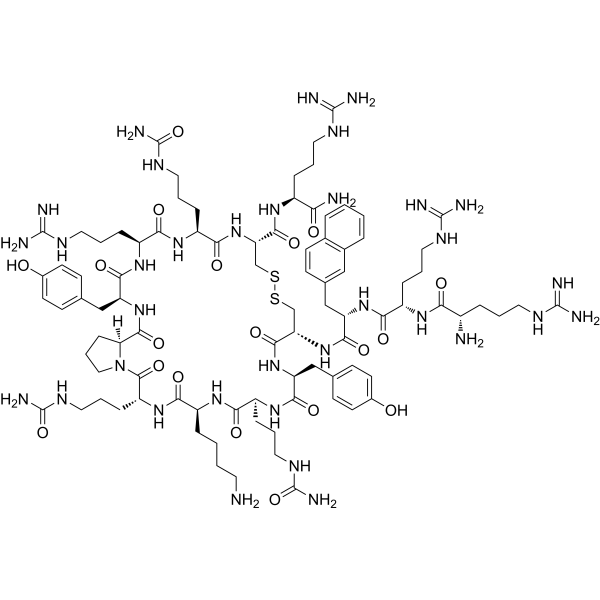
-
- HY-19867A
-
|
TG-0054 hydrobromide
|
CXCR
|
Cardiovascular Disease
Inflammation/Immunology
Endocrinology
Cancer
|
|
Burixafor hydrobromide (TG-0054 hydrobromide) is an orally bioavailable and potent antagonist of CXCR4 and a well anti-angiogenic drug that is of potential value in treating choroid neovascularization . Burixafor hydrobromide (TG-0054 hydrobromide) mobilizes mesenchymal stem cells, attenuates inflammation, and preserves cardiac systolic function in a porcine model of myocardial infarction .
|
-
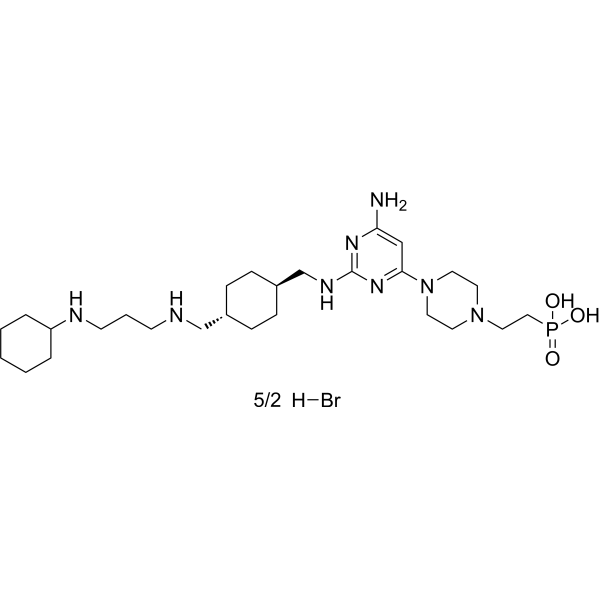
-
- HY-P1102A
-
|
|
CXCR
HIV
|
Infection
Cancer
|
|
TC14012 TFA, a serum-stable derivative of T140, is a selective and peptidomimetic CXCR4 antagonist with an IC50 of 19.3 nM. TC14012 TFA is a potent CXCR7 agonist with an EC50 of 350 nM for recruiting β-arrestin 2 to CXCR7. TC14012 TFA has anti-HIV activity and anti-cancer activity .
|
-
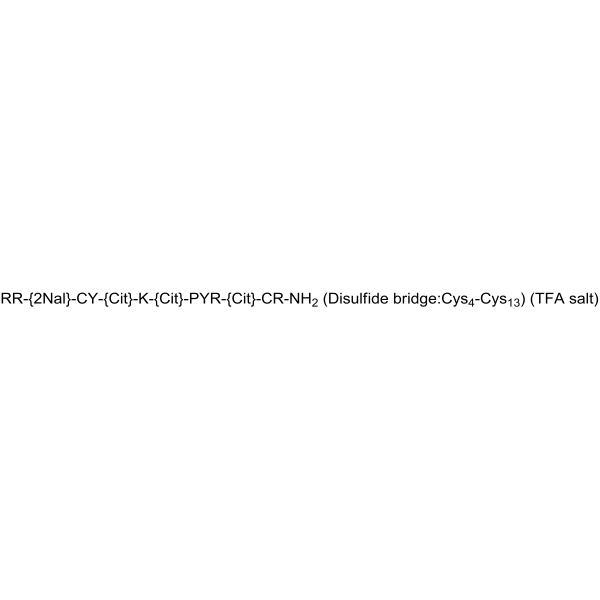
-
- HY-10046S
-
|
|
Isotope-Labeled Compounds
CXCR
HIV
|
Infection
Inflammation/Immunology
Endocrinology
Cancer
|
|
Plerixafor-d4 is the deuterium labeled Plerixafor. Plerixafor (AMD 3100) is a selective CXCR4 antagonist with an IC50 of 44 nM. Plerixafor, an immunostimulant and a hematopoietic stem cell (HSC) mobilizer, is an allosteric agonist of CXCR7. Plerixafor inhibits HIV-1 and HIV-2 replication with an EC50 of 1-10 nM[1][2][3][4][7].
|
-
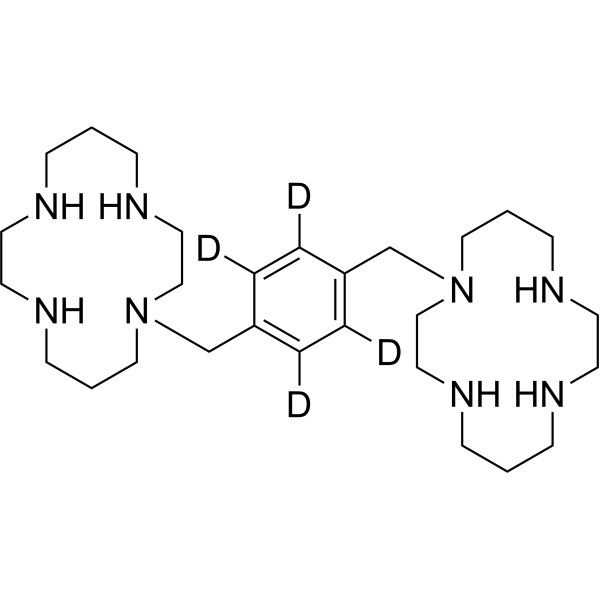
-
- HY-122197
-
|
|
CXCR
Apelin Receptor (APJ)
Arrestin
|
Cancer
|
|
ML339 is a selective CXCR6 antagonist with an IC50 of 140 nM. ML339 antagonizes β-arrestin recruitment and cAMP signaling pathway of human CXCR6 receptor induced by CXCL16, with IC50 of 0.3 μM and 1.4 μM, respectively. ML339 has no inhibitory effect on CXCR5,CXCR4,CXCR6 and apelin receptor (APJ), with IC50 >79 μM. ML339 has the potential to promote the development of prostate cancer research .
|
-
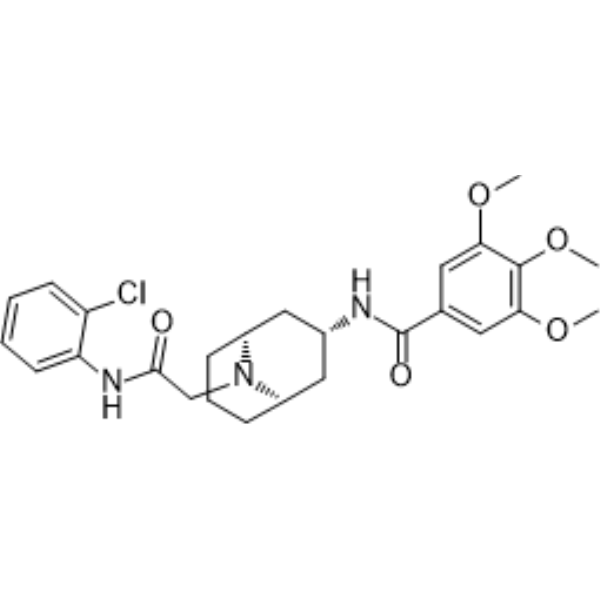
-
- HY-D0976
-
|
|
P2X Receptor
HIV
|
Infection
|
|
NF279 is a potent selective and reversible P2X1 receptor antagonist, with an IC50 of 19 nM. NF279 displays good selectivity over P2X2, P2X3 (IC50=1.62 μM), P2X4 (IC50>300 μM). NF279 is a dual HIV-1 coreceptor inhibitor that interferes with the functional engagement of CCR5 and CXCR4 by Env .
|
-
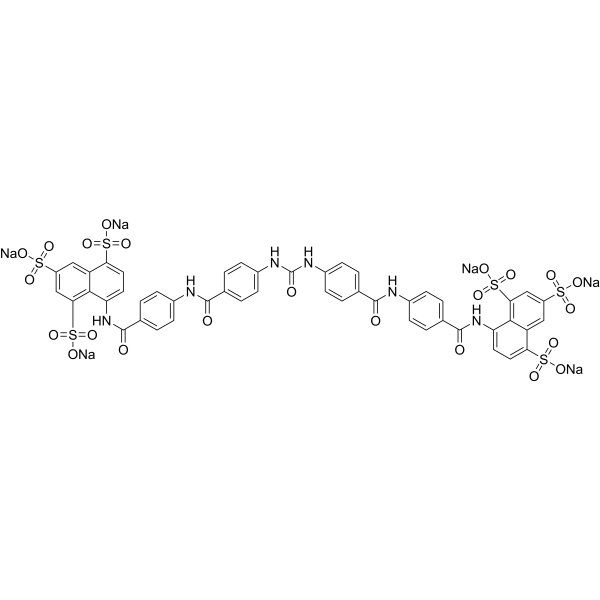
| Cat. No. |
Product Name |
Target |
Research Area |
-
- HY-12488
-
LY2510924
Maximum Cited Publications
12 Publications Verification
|
CXCR
|
Endocrinology
Cancer
|
|
LY2510924 is a potent and selective CXCR4 antagonist that blocks SDF-1 binding to CXCR4 with an IC50 of 0.079 nM.
|
-
- HY-P1103
-
|
|
CXCR
|
Cancer
|
|
CTCE-9908 is a potent and selective CXCR4 antagonist. CTCE-9908 induces mitotic catastrophe, cytotoxicity and inhibits migration in CXCR4-expressing ovarian cancer cells .
|
-
- HY-P1104A
-
|
|
CXCR
HIV
|
Infection
|
|
FC131 TFA is a CXCR4 antagonist, inhibits [ 125I]-SDF-1 binding to CXCR4, with an IC50 of 4.5 nM. Anti-HIV activity .
|
-
- HY-144285
-
|
|
CXCR
HIV
|
Inflammation/Immunology
|
|
CXCR4 antagonist 4 is a potent, orally active CXCR4 antagonist (IC50=24 nM) with diminished CYP 2D6 activity, improved PAMPA permeability, potent inhibition of human immunodeficiency virus entry (IC50=7 nM) .
|
-
- HY-P1103A
-
|
|
CXCR
|
Cancer
|
|
CTCE-9908 TFA is a potent and selective CXCR4 antagonist. CTCE-9908 TFA induces mitotic catastrophe, cytotoxicity and inhibits migration in CXCR4-expressing ovarian cancer cells .
|
-
- HY-P4109
-
|
NT21MP; V1 peptide
|
CXCR
|
Inflammation/Immunology
Cancer
|
|
vMIP-II (1-21) is a CXCR4 antagonist. vMIP-II has broad-spectrum interaction with CC and CXC chemokine receptors. vMIP-II (1-21) binds with CXCR4 with an IC50 value of 190 nM for competing with CXCR4 binding of 125I-SDF-1R .
|
-
- HY-P1104
-
|
|
CXCR
HIV
|
Infection
|
|
FC131 is a potent CXCR4 antagonist. FC131 inhibits [ 125I]-SDF-1 binding to CXCR4 with an IC50 of 4.5 nM. FC131 has anti-HIV activity .
|
-
- HY-P0171
-
|
BKT140 (4-fluorobenzoyl); BL-8040; TF14016
|
CXCR
|
Endocrinology
Cancer
|
|
Motixafortide (BKT140 4-fluorobenzoyl) is a novel CXCR4 antagonist with an IC50 vakue of ~1 nM.
|
-
- HY-P7061
-
|
|
CXCR
Apelin Receptor (APJ)
|
Infection
Endocrinology
|
|
ALX 40-4C is a small peptide inhibitor of the chemokine receptor CXCR4, inhibits SDF-1 from binding CXCR4 with a Ki of 1 μM, and suppresses the replication of X4 strains of HIV-1; ALX 40-4C Trifluoroacetate also acts as an antagonist of the APJ receptor, with an IC50 of 2.9 μM.
|
-
- HY-P7061A
-
|
|
Apelin Receptor (APJ)
CXCR
|
Infection
Endocrinology
|
|
ALX 40-4C Trifluoroacetate is a small peptide inhibitor of the chemokine receptor CXCR4, inhibits SDF-1 from binding CXCR4 with a Ki of 1 μM, and suppresses the replication of X4 strains of HIV-1; ALX 40-4C Trifluoroacetate also acts as an antagonist of the APJ receptor, with an IC50 of 2.9 μM.
|
-
- HY-P1682
-
|
POL6326
|
CXCR
Arrestin
|
Cancer
|
|
Balixafortide (POL6326) is a potent, selective, well-tolerated peptidic CXCR4 antagonist with an IC50 < 10 nM. Balixafortide shows 1000-fold selective for CXCR4 than a large panel of receptors including CXCR7. Balixafortide blocks β-arrestin recruitment and calcium flux with IC50s < 10 nM. Balixafortide is also a potent hematopoietic stem and progenitor cell (HSPC) mobilizing agent. Anti-cancer effects .
|
-
- HY-P4111
-
|
|
CXCR
|
Cancer
|
|
Peptide R, a cyclic peptide, is a specific CXCR4 antagonist. Peptide R shows outstanding capacities to profoundly remodel the tumor stroma. Peptide R has the potential for tumor research .
|
-
- HY-P1682A
-
|
POL6326 TFA
|
CXCR
Arrestin
|
Cancer
|
|
Balixafortide TFA (POL6326 TFA) is a potent, selective, well-tolerated peptidic CXCR4 antagonist with an IC50 < 10 nM. Balixafortide TFA shows 1000-fold selective for CXCR4 than a large panel of receptors including CXCR7. Balixafortide TFA blocks β-arrestin recruitment and calcium flux with IC50s < 10 nM. Balixafortide TFA is also a potent hematopoietic stem and progenitor cell (HSPC) mobilizing agent. Anti-cancer effects .
|
-
- HY-P1102
-
TC14012
2 Publications Verification
|
CXCR
HIV
|
Infection
Cancer
|
|
TC14012, a serum-stable derivative of T140, is a selective and peptidomimetic CXCR4 antagonist with an IC50 of 19.3 nM. TC14012 is a potent CXCR7 agonist with an EC50 of 350 nM for recruiting β-arrestin 2 to CXCR7. TC14012 has anti-HIV activity and anti-cancer activity .
|
-
- HY-P1102A
-
|
|
CXCR
HIV
|
Infection
Cancer
|
|
TC14012 TFA, a serum-stable derivative of T140, is a selective and peptidomimetic CXCR4 antagonist with an IC50 of 19.3 nM. TC14012 TFA is a potent CXCR7 agonist with an EC50 of 350 nM for recruiting β-arrestin 2 to CXCR7. TC14012 TFA has anti-HIV activity and anti-cancer activity .
|
| Cat. No. |
Product Name |
Chemical Structure |
-
- HY-10046S
-
|
|
|
Plerixafor-d4 is the deuterium labeled Plerixafor. Plerixafor (AMD 3100) is a selective CXCR4 antagonist with an IC50 of 44 nM. Plerixafor, an immunostimulant and a hematopoietic stem cell (HSC) mobilizer, is an allosteric agonist of CXCR7. Plerixafor inhibits HIV-1 and HIV-2 replication with an EC50 of 1-10 nM[1][2][3][4][7].
|
-

Your information is safe with us. * Required Fields.
Inquiry Information
- Product Name:
- Cat. No.:
- Quantity:
- MCE Japan Authorized Agent:























































